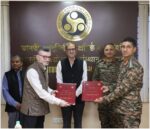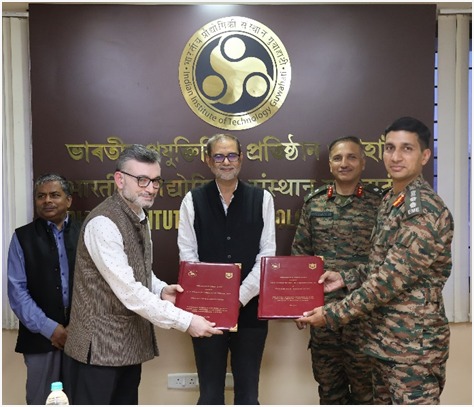In a major global policy initiative that can boost rhino conservation efforts, the countries having major concentrations of Asian rhinos – India, Nepal, Bhutan, Indonesia and Malaysia – on Thursday agreed to collaborate for strengthening protection regimes, intelligence gathering and real-time sharing of intelligence information on rhino crime and its horn trade.
The official declaration assumes significance, especially against the backdrop of growing poaching threat faced by the rhino, driven by the illegal nefarious global trade in its horn.
The deliberations at the three-day Second Asian Rhino Range Countries’ Meeting that concluded in New Delhi on Thursday recognised the critical situation being faced by the Asian rhinos and agreed on initiating research on various habitat parameters including invasive species threatening the suitable habitats of Asian rhinos and take appropriate steps to optimally manage the habitats.
Further, the meet resolved on exploring possibilities of expanding rhino ranges within country or between rhino range countries for optimal population management.
The official declaration added that the meet resolved “to strengthen trans-boundary collaboration among India, Nepal and Bhutan for the greater one-horned rhino conservation and protection; and to identify connectivity and corridors across international boundaries and keep them functional, safe and secure for free movement of Asian rhinos and other wildlife.”
“The meet laid emphasis on increasing the engagement of the local communities as stewards to secure the future of rhinos in range countries and also to initiate proactive monitoring on potential adverse impacts of climate change on rhino health and their habitats in range countries,” Dr. Bibhab Talukdar, Chair, Asian Rhino Specialist Group, told The Assam Tribune.
The declaration resolved to undertake studies on rhino health issues and potential diseases and take necessary steps for management intervention and to regularly organise exposure visits for managers and frontline staff of the rhino range countries and to document the best practices for wider dissemination besides collaborating and strengthening wildlife forensics for the purpose of investigation.
“The meeting has been successful in the range country participants coming together to identify new areas for collaborative works. WWF-India has played a key role in highlighting the need to work on securing rhino habitats and corridors, conduct of research on rhino health and wildlife forensics. These have now been recognised by the group as important works,” Amit Sharma of WWF-India said.
Sharma said that for the first time India has got a comprehensive strategy on rhino conservation, which also involved all the range countries.


















